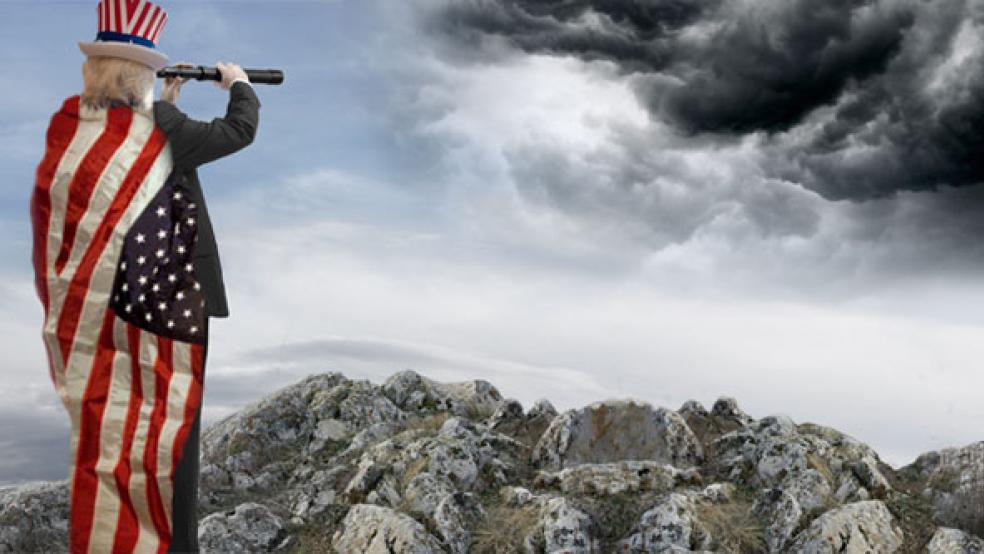Federal Reserve Board chairman Ben Bernanke sent a clear message to Congress Wednesday that its failure to address the “fiscal cliff” is hurting some businesses and will slow the economy if left to the last minute. The payroll tax cuts and the Bush-era tax cuts expire and over $1 trillion in budget cuts go into effect on January 1 of next year.
“It’s still a bit early, but as we move forward we do anticipate that the uncertainty associated with the fiscal cliff will have economic effects,” he told reporters shortly after the Fed lowered its economic forecast for the rest of this year. “We heard anecdotes about firms that may not be hiring contractors because they are not sure if their contracts will be in place in January.”
Evidence is mounting that the austerity imposed by last year’s Budget Control Act, which mandated an immediate 10-year, $1 trillion cut in spending ahead of next year’s across-the-board cuts of $1 trillion, is having a major impact on economic growth. They come on top of massive cutbacks at the state and local government level, where more than 600,000 workers have lost their jobs in the last two years.
For the first time, the Fed chairman listed federal austerity as one of the major headwinds facing an economy that can’t seem to reach escape velocity as it struggles to emerge from the most serious financial crisis since the 1929 stock market crash that led to the Great Depression. When asked why the unemployment rate hasn’t fallen faster, he first cited the European fiscal crisis and the prolonged housing slump in the U.S.
But then he added, “the other area is fiscal: federal, state and local. I‘m not criticizing, but these contractions are affecting the pace of growth in the broader economy. Put them all together and you have an economy that’s growing less quickly than it normally would following a recession of the magnitude that we saw.”
Few political analysts believe Congress and the White House will reach an early accommodation on the path needed to avoid the fiscal cliff, which would be a moderation in the spending cuts and enacting broad-based tax reform. The most likely scenario is postponing consideration of the measures until after the election, which means another nearly five months of economic uncertainty and sluggish growth.





